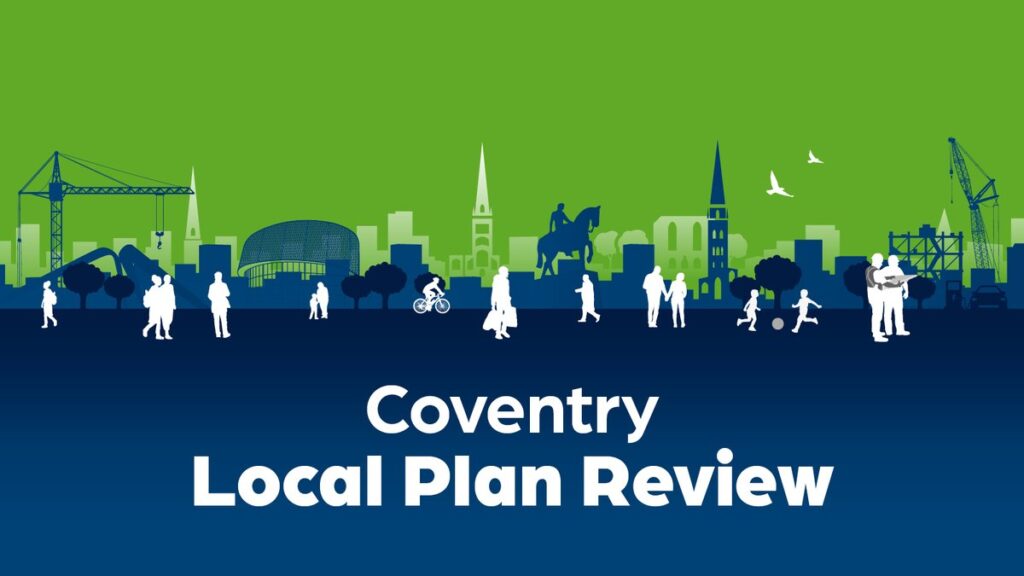
Introduction
The local plan prepared by the Council which sets out the future development of the city over the next 15 years has reached an important stage in the approval process. The purpose of this briefing is to summarise it and highlight the key issues. Unfortunately, the procedures are complex and legalistic. But it is vital to understand the procedures in order to appreciate what is happening.
Brief history
Coventry City Council submitted its draft Local Plan Review to the Secretary of State on 9 September 2025, triggering the independent examination by the Planning Inspectorate.
Prior to this the Council conducted the formal Regulation 19 consultation from 20 January to 3 March 2025, inviting representations on legal compliance and “soundness” (whether it meets the required policy tests of being positively prepared, justified, effective and consistent with national policy).
Earlier, in summer 2023, the “Issues & Options” stage (Regulation 18) took place to explore what policies should be kept, changed or added.
The evidence base has been updated throughout, including background papers on housing, employment, green belt, transport, environment and more.
Coventry Society participated in both the Regulation 18 and Regulation 19 consultation stages.
Next steps
The Planning Inspectorate will examine the plan, focusing on whether Coventry has followed the correct legal procedures and whether the plan is “sound” as per national policy.
There may be public hearing sessions, where those who made objections or representations in the Regulation 19 stage can participate.
The Inspector will produce a report, potentially recommending main modifications to make the Plan adoptable. Once any required changes are made, and assuming the Inspector is satisfied, the Council can adopt the Plan.
What’s Likely to be Debated at the Coventry Local Plan Hearings
The government’s planning inspectors will soon hold hearings on Coventry’s draft Local Plan. This is where they test whether the plan is fair, realistic and follows national rules. The main topics likely to come up are:
How many homes Coventry really needs. Some groups say the council’s housing targets are too high, while others argue they’re necessary to meet demand.
Where those homes go. There’s concern about building on greenfield or Green Belt land instead of prioritising brownfield (previously developed) sites.
Infrastructure. Can local roads, schools, GP surgeries and other services cope with thousands of new homes? The inspectors will check that funding and timing add up.
Affordable homes. Critics want stronger policies to ensure genuinely affordable and varied types of housing.
Environment and climate change. Campaigners want to see tougher rules on protecting wildlife, tackling flooding and cutting carbon emissions.
Working with neighbouring councils. Inspectors will examine whether Coventry and surrounding districts have planned together fairly.
After the hearings the inspectors can recommend changes (called “main modifications”) before the council adopts the plan.
Coventry Society’s Concerns
Coventry Society has raised concerns over whether the policies in the plan are adequate to deal with the amount of purpose-built student housing (PBSA) being developed, the loss of employment land, and the inappropriateness of the boundaries of the Charterhouse Heritage area.
